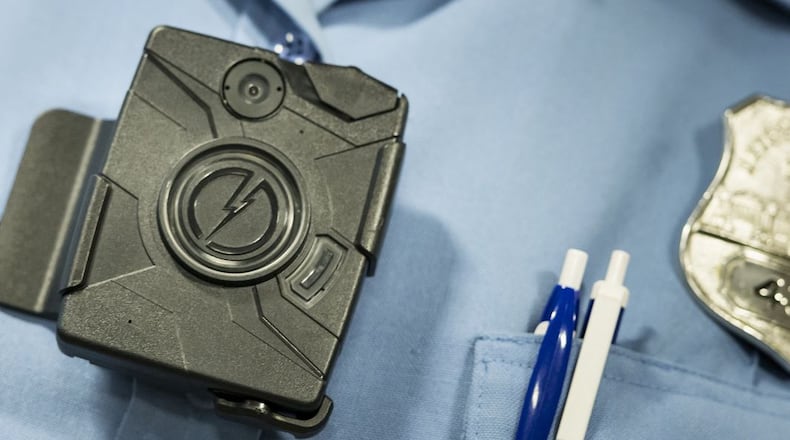Lebanon City Council approved entering a 10-year, $541,783 contract with Axon Enterprise, Inc., for the body cameras and in-cruiser camera systems.
Police Chief Jeffrey Mitchell recently told council that the time is now to implement the new integrated technology with its existing Taser and in-cruiser cameras.
“It’s the environment we’re in and a body camera program is important for the agency to protect the community and the officers,” he said.
The proposed 10-year contract including the equipment, software, cloud storage, and accessories such as chargers will cost a total of $541,783. Of that amount, the body cameras cost $348,516 and the in-cruiser cameras $193,266. The city will pay a yearly fee of $54,178 for both packages. Axon also provides periodic refreshes of the body and in-cruiser cameras as part of the package.
Mitchell is planning to outfit 31 officers and 14 marked cruisers. The system also integrates the body camera, in-cruiser camera, Taser, evidence and records management systems.
“With the approved legislation for the body-worn cameras the agency will continue to evaluate best practices and procedures, and develop our agency policies,” Mitchell said.
Lebanon will join the Ohio State Highway Patrol’s Lebanon post in using the body camera technology. The highway patrol post is completing the installation and implementation of body and new in-cruiser cameras.
The city of Franklin announced in October that it is seeking state funding for a body camera program.
Mitchell said using body cameras would help build public trust, strengthen police accountability, improve transparency, resolve officer-involved incidents, identify and correct internal problems, strengthen officer performance, prevent confrontational situations, and improve evidence documentation.
Lebanon Mayor Mark Messer said having a strong policy will be important as these cameras are implemented by police.
Councilman Brad Lamoreaux said the new body cameras give the city checks and balances and will protect the citizens and officers.
Advocates of the body camera technology say it helps law enforcement officers collect evidence, monitor police activity and resolve conflicts between police officials and the public.
Englewood was the first area department to use them, starting in 2014, and officers there are on their third generation of cameras. Other agencies in the region are using body cameras that are connected to cruiser cameras.
About the Author

